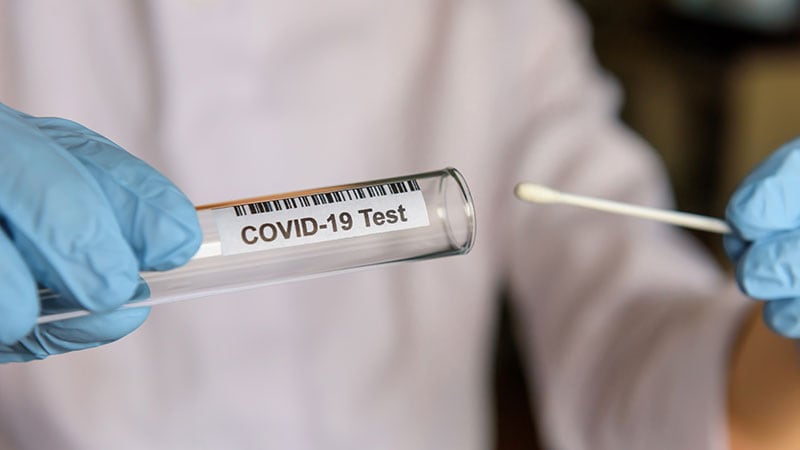Editor’s note: Find the latest COVID-19 news and guidance in Medscape’s Coronavirus Resource Center.
Two FDA-approved rapid antigen tests produced accurate results for COVID-19 infections across three phases of circulating variants — pre-Delta, Delta, and Omicron — according to a new study published in JAMA Network Open.
Abbott Laboratories’ BinaxNOW COVID-19 Ag Card and InBios International’s SCoV-2 Ag Detect Rapid Self-Test had consistent accuracy across all three phases.
“Rapid antigen-based diagnostic tests have now become widely abundant and may be useful to facilitate testing in community- and home-based settings, expedite treatment initiation, and optimize isolation periods,” the study authors wrote.
Researchers from the University of Washington and the University of Nevada tested 800 adults who reported COVID-19 symptoms in the previous five days. They tested patients at multiple COVID-19 testing sites across King County in Washington between February 2021 and January 2022. The study period included the timeframes for pre-Delta variants such as Alpha and Epsilon, the Delta variant, and the BA.1 Omicron variant.
The average participant age was 37, and 58% were women. About 53% were unvaccinated. The participants were tested around two days after symptoms began.
The researchers collected two nasal swabs from each participant, testing one on site with the SCoV-2 test and sending one for PCR testing at a lab. The team also evaluated the test performance and analytical detection limit for both the SCoV-2 and the BinaxNow tests by spiking negative nasal swabs with live virus and testing dilutions that represented viral load.
The research team found no significant differences in the analytical detection limit or clinical diagnostic accuracy for the tests across the three COVID-19 variant phases. The estimated limit of detection for both tests was at or below a 50% tissue culture infectious dose of 62.5.
The positive percent agreement of the SCoV-2 test with the PCR test ranged from 81.2% to 90.7% across the three variants. The negative percent agreement remained high throughout the study period, with a cumulative diagnostic specificity of 99.8%.
In addition, there were no apparent differences in clinical test performance when calculating for vaccination status or days since symptom onset.
“Although more clinical studies are needed, the ongoing home-based rapid antigen testing programs may be an important intervention to reduce global SARS-CoV-2 transmission,” the study authors wrote.
Source
JAMA Network Open: “Accuracy of 2 Rapid Antigen Tests During 3 Phases of SARS-CoV-2 Variants.”
Source: Read Full Article
